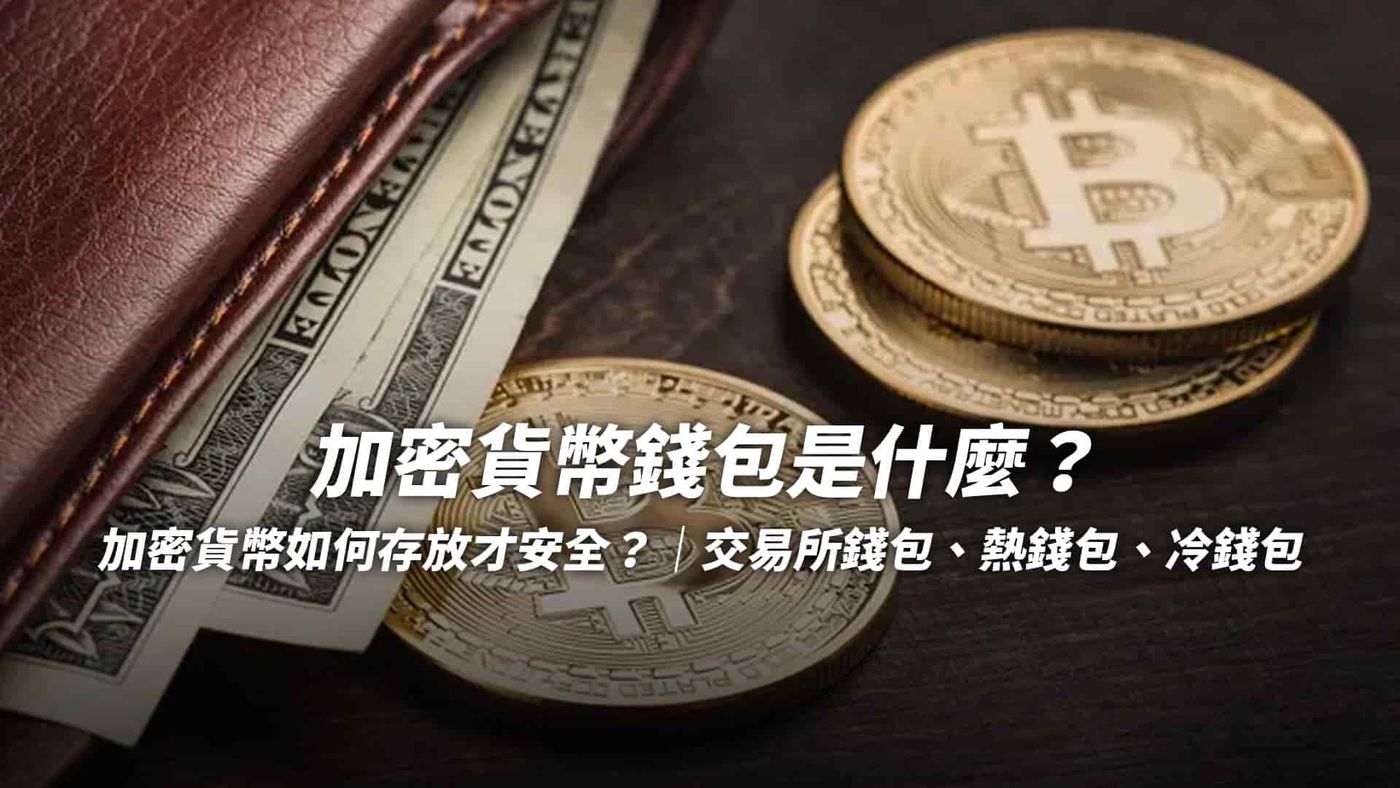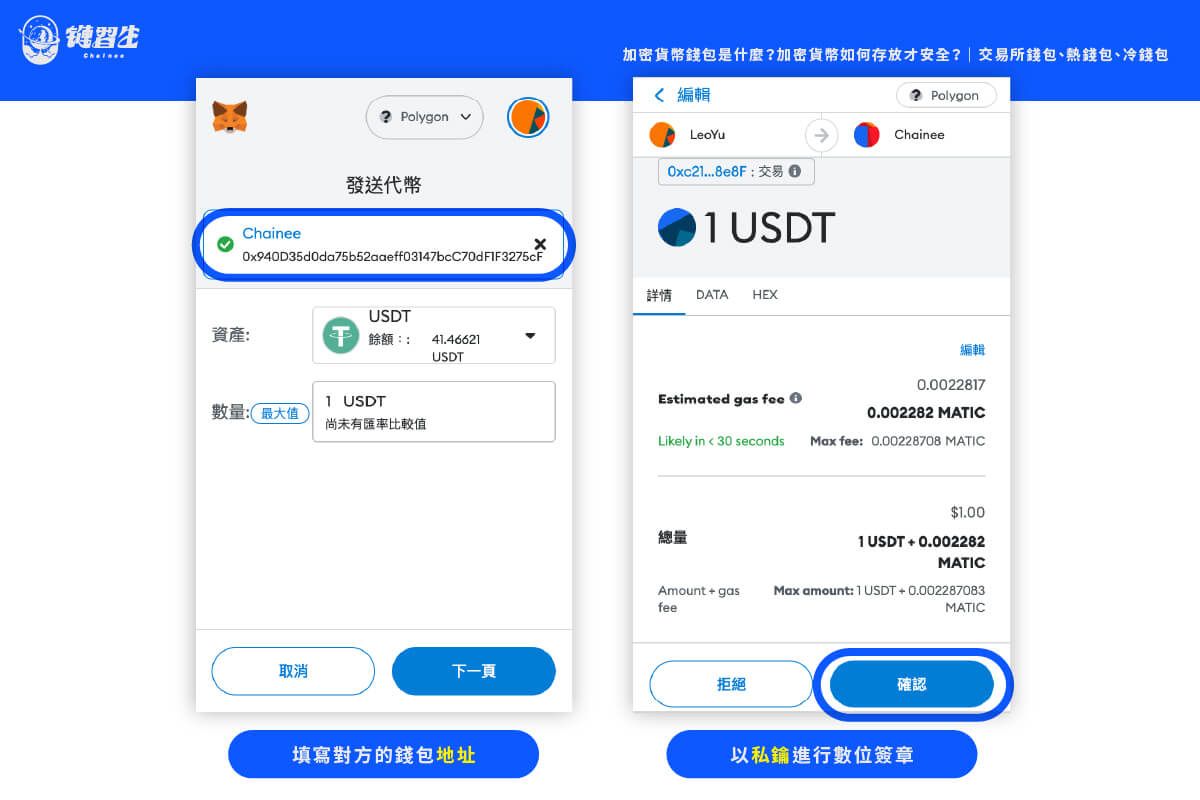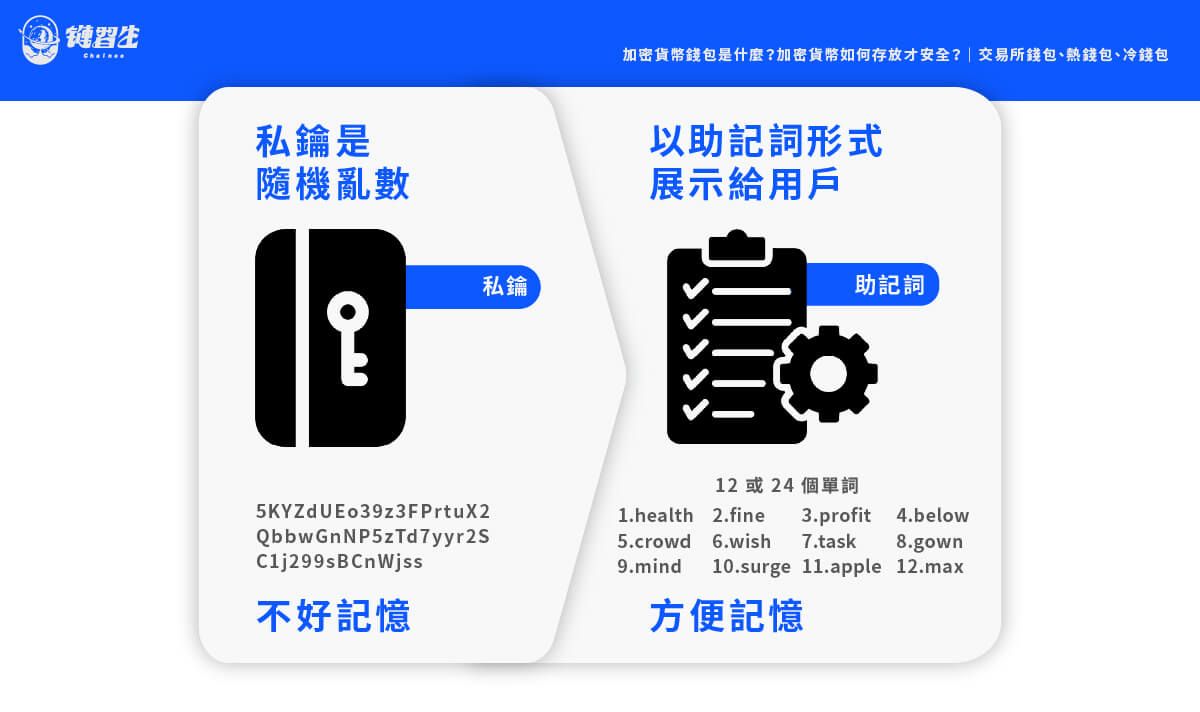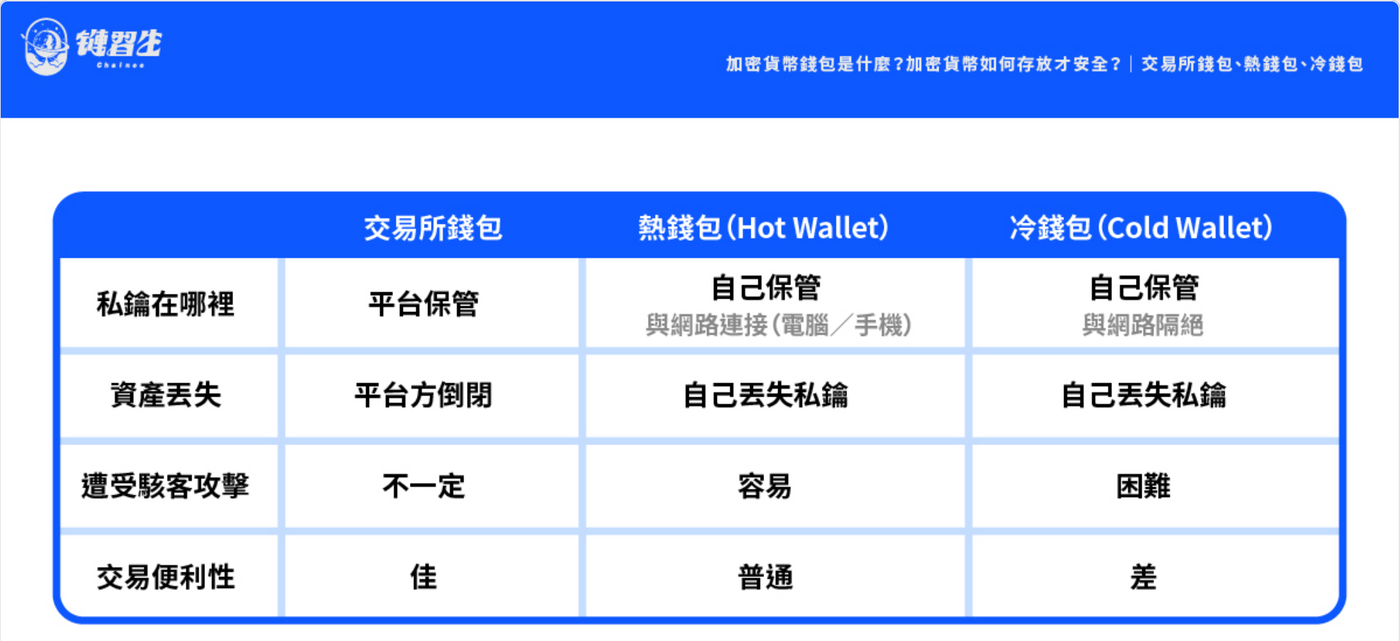
https://linktr.ee/penfarming 金融職人|文案編輯|雜食性閱讀者|Heptabase 愛用者 🌐 區塊鏈科普網站【鏈習生】專欄作家 🗞️ 電子報【創作者經濟IMO】主編 👤 臉書專頁【閱讀筆耕】
Reading Bigeng|What is a cryptocurrency wallet? Exchange wallet, hot wallet, cold wallet
This article is excerpted from the popular blockchain science website "Chainee" . What is a cryptocurrency wallet? How to store cryptocurrency safely? |In the article Exchange Wallet, Hot Wallet, and Cold Wallet , let us spend 3 minutes to quickly grasp the differences between the three types of cryptocurrency wallets.

👉Collect the Writing NFT version of this article👈
What is a cryptocurrency wallet?
A cryptocurrency wallet is a digital wallet used to store, send, and receive cryptocurrency. It is the most basic part of the encryption facility and makes it possible to realize various applications of blockchain technology.
Going back to 2008, when Satoshi Nakamoto invented Bitcoin , he told everyone in his paper that the Bitcoin protocol is a "Peer-to-Peer" decentralized electronic cash system. You can understand "point-to-point" as "person-to-person" without any third party. In other words, the vision outlined by Satoshi Nakamoto is for everyone to hold their own assets , rather than placing assets in custody in a third-party centralized institution.
In order to understand more clearly what "holding your own assets" means, we must first clarify how a cryptocurrency wallet operates and understand the components of a cryptocurrency wallet.
What are the components of a cryptocurrency wallet? Mode of operation?
≣ Private key, public key, address
In the traditional financial world, we keep money in "bank accounts." When we need to use money, our "account seal" is used to prove that we are the account holder, and the money is sent to someone else's "bank account".
In the blockchain world, we store cryptocurrencies in “wallets.” When we need to spend cryptocurrency, our "private key" is used to prove that we are the holder of the wallet and the money is sent to someone else's "wallet address."
Digital wallets in the blockchain world have three major components: private key, public key, and address:
- Private Key
Metaphor → Bank "account seal".
Used to confirm the ownership of the wallet, private ownership, and private custody. - Public Key
On the blockchain, the tool used by miners (validators, nodes) to decrypt seals. - Address
Metaphor → Bank "account number".
It is a string of English letters and numbers that can be made public and used to receive transfers from others.
How digital wallet works:
Let's take "A sends 1 stable currency to Chainee" as an example. First, A must fill in Chainee's wallet address (starting with 0x940). At this time, the system will prompt A to use the private key to digitally sign for confirmation, proving that A has the right to use his own wallet. stablecoin. Next, the miners on the blockchain will verify the transaction and use A's public key to check to see if it was a transaction initiated by A and whether it was signed by A using a digital signature. The authenticity of the transaction. If the verification is correct, the transaction will be established and written into the block.
If you don’t know much about the operation mode of blockchain, you can read this article first: What is Bitcoin? Why is it called “digital gold”? How Bitcoin, the King of Cryptocurrencies, Works!

≣ Mnemonic phrase
The private key mentioned just now is a random binary number, which is really too lengthy. So people converted it into decimal, and later derived the "protocol-defined word list" to make the private key more streamlined and more user-friendly. This is the origin of mnemonic phrases (mnemonic phrases, recovery phrases, seed phrases) ; We can say that the mnemonic is another form of private key . It uses an algorithm to convert the long private key into several common English words, which makes it much easier to remember.
Crypto wallets will provide backup mnemonic phrases, usually 12 or 24 words. Please handwrite them on paper in order (do not take screenshots, take photos, or store them in the cloud to avoid leakage) and keep them properly. When the device is lost or malfunctions, the mnemonic phrase can help you recover your wallet and digital assets.

Cryptocurrency Wallet Classification
After understanding the components of a cryptocurrency wallet—private key (mnemonic), public key, and address—we have made the following classifications for cryptocurrency wallets based on the context of “ where is the private key ”:
≣ Exchange wallet
Generally, novices who join the cryptocurrency industry will register an account at a "centralized" cryptocurrency exchange. At this time, a cryptocurrency wallet will indeed be generated in the exchange and you will be given the wallet address, but the user will not get the private key because the private key of this wallet is kept by the exchange for you . So your assets are actually held in custody on the exchange. You only have the authority to "log in and view" the wallet balance, but do not actually obtain ownership of the wallet . This is different from buying and selling stocks in the traditional financial circle - funds are held in custody on the exchange. Securities delivery account - the same concept.
Putting assets under custody in a third-party centralized institution makes daily operation and management convenient, and the experience is similar to placing orders to buy and sell stocks online. However, it is also exposed to the risk of "something happens to the platform", ranging from temporary freezing of funds to severe Then the exchange will permanently close down, such as the early Mt. Gox exchange hacking incident, or even the recent FTX exchange thunder storm... Remember, Not Your Keys, Not Your Coins.
Extended reading: [Special Report] FTX bankruptcy incident, a lazy bag, a timeline review
≣ Hot Wallet
After you have been in the currency circle for a while and left the novice village, you may have heard of hot wallets such as Metamask Little Fox Wallet. This is a wallet that runs on "computers, mobile phones and other Internet-connected devices". It can be a browser plug-in on a computer or an App on a mobile phone.
The hot wallet is installed and interacts with various decentralized applications (DApps) through its connections. Under the current situation, the private key is stored in your software . You can check it at any time and copy it down for backup. The private key is kept by you . At this point, we truly control our own wallet and keep our own money. . However, because the private keys of hot wallets are connected to the Internet when generating, storing, and using them, the probability of being attacked by network hackers is relatively high, and it is not absolutely safe.
≣ Cold Wallets
More advanced users are beginning to seriously consider buying a cold wallet, which looks like a flash drive, a credit card or even a piece of paper. The biggest difference between a cold wallet and a hot wallet is that the generation, storage, and use of private keys are not connected to the Internet. Instead, they are stored in a physical hardware that is "isolated from the Internet" and are kept by you . Naturally, no private keys will be hacked. It's possible to go.
The cold wallet contains not money, but your private keys, and your cryptocurrency is still recorded on the blockchain. But when you want to move these funds, the action of signing the digital signature (Digital Signature) is performed on a cold wallet that is "isolated from the Internet." Your authorization is sent to the blockchain via USB or Bluetooth transmission - not connected to the Internet - to complete the transaction.


🌱 Join [ Zhongshu Nervous System ] Wailuo👇
The special topics #Reflections on Writing and #热内真情are being serialized.
🌱 I appear on other platforms 👇
【 Facbook | Twitter | Liker Social | Matters | Medium | vocabulary 】
🌱 My teaching materials and invitation links 👇
≣Register noise.cash | Become a "noise coffee" and experience social finance together .
≣Register Presearch | Search to earn three birds with one stone .
≣Register for MEXC | Go to the Matcha Exchange to redeem OSMO and play wool .
≣Register Potato | Learn three things from Potato Media .
Like my work?
Don't forget to support or like, so I know you are with me..

中書神經系統

1. 關注各種有關書的消息。 2. 長文:專題 #寫作的反思 與 #爐內真心話 連載中。 3. 短文:每日「鏈習生幣圈日報」新聞的盤後觀點 murmur 眾聊。
Comment…